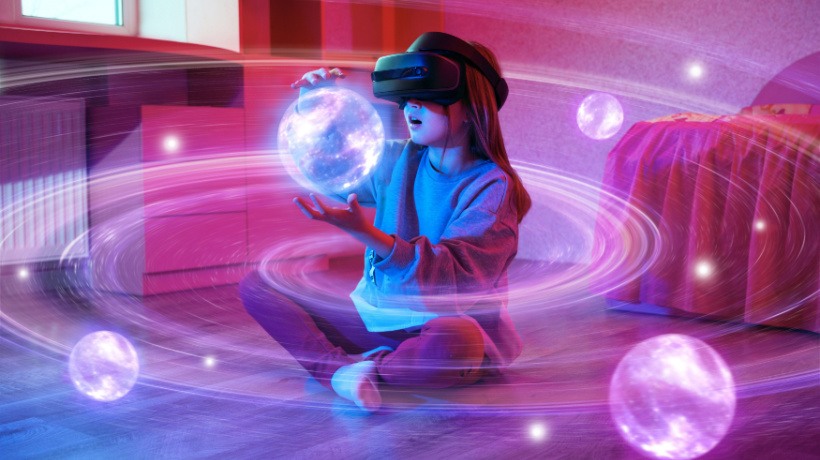What Does The Future Of Personalized Learning Hold?
Personalized learning is not a new concept. In fact, the idea of adapting learning to match learner needs was first documented as early as the 1800s. However, in recent years, we're seeing changes in the techniques that educators have been using for over a century. Most of these changes have been brought about by the surge of digital technologies, particularly Machine Learning (ML) and Artificial Intelligence (AI). In this article, we will talk about the effects of technology we're already experiencing, as well as how those are expected to shape the future of personalized learning.
How Has Technology Already Affected Personalized Learning?
The effects of technology on personalized learning are all around us, whether we notice them or not. Learners from around the world already have access to learning platforms that provide customized data with the help of AI algorithms. They can easily find courses that match their preferences, skill level, and learning objectives. Not to mention the plethora of online resources and virtual assistants that help them continue learning at their leisure. Finally, they can constantly connect with learners who have similar interests to exchange information and broaden their horizons.
At the same time, educators have had a major weight lifted off of their shoulders, as AI is helping them with repetitive tasks such as grading and creating lessons or assessments. Moreover, communication between them and their learners is greatly facilitated by tools such as chats and forums. At times, their input is not even necessary, as they can create knowledge bases that take care of expected questions. That gives them more time to carefully curate their learning material to create appealing and effective learner experiences.
What To Expect Next?
Technology is developing in great strides, which means that it is hard to know exactly how it will look 5, 10, or 50 years from now. However, there are a few things we can expect based on what we know so far. Here are 5 predictions about the future of personalized learning in the digital world.
1. Assessments And Fact-Checking
Technologies of the future and, especially, advanced AI will have the ability to evaluate learning progress over a long period of time, thus instantly giving the educator a complete picture of the learners' knowledge gaps, acquired skills, and projected development. At the same time, as more AI writing helpers make their appearance, a large part of the assessment process will be separating the "truth" from AI-generated content. Therefore, rather than educators struggling to fact-check the work of their learners, in the future AI will be equipped to quickly detect and prevent such incidents.
2. One-On-One Personalized Learning
As digital tools that promote personalized learning keep evolving, group learning is going to fade into the background. Instead, Artificial Intelligence will be able to act as a personal instructor to learners, giving them all the attention they need and customizing their learning paths. However, that doesn't mean that personal interactions will go extinct. Human instructors can still support learners when necessary, and contact with peers will take place on learning platforms or a virtual learning environment.
3. The Virtual Classroom
Speaking of virtual environments, the virtual classroom is expected to gain much more popularity in the world of education. Its purpose will be to overcome distance and boost the sense of teamwork and community among online learners. There, digital versions (avatars) of the learners will be able to interact with each other and learn collaboratively. Even in cases when learners are in the same physical location, VR and AR tools will be used to enhance the learning experience.
4. Lifelong Learning
This is already a reality, but it is expected to be even more prevalent in the future. With technology and worldwide connectivity making education more accessible than ever, more and more people will make lifelong learning a vital part of their lives. They will start with finding additional resources when they are still students and continue with constantly enriching their knowledge base to aid their professional development.
5. Diversity And Fairness
So many steps have been taken to make learning accessible to all. But what is now a continuous struggle will be an effortless habit in the future of personalized learning. Supporting learning with technology will allow us to reach every corner of the planet, offer instantaneous translations of training courses to any language, and integrate features to aid learners with any type of disability. Finally, AI will eliminate biases that are now present in its databases so that it can always provide us with results that are correct and objective.
The Virtual Grass Is Not Always Greener
For many of us, all these technological advances make the future of learning seem shiny and impressive. However, we shouldn't treat digital tools as a cure-all. Sure, they can help instructors and learners alike save time by taking on repetitive tasks, but there are some things that still require human emotional intelligence. For example, during the early years of education, the presence of a human educator cannot be replaced by a machine. Doing so will negatively impact young learners, who need to practice crucial soft skills such as communication, teamwork, and problem solving. Finally, it's important to remember that AI is not yet ready for us to rely on it completely. Fact-checking and modifying the information it gives us is still necessary to avoid misinformation and data bias.
A Bright Future Lays Ahead
It's undeniable that Machine Learning and Artificial Intelligence are here to stay, and the effects they will have on the future of personalized learning will be hard to ignore. And, to be honest, you shouldn't want to. Technology can be a valuable tool for educators and instructors in any learning environment, helping them identify knowledge gaps and design customized learning paths to address them effortlessly. So, figure out how technology can serve the needs of your audience and use it to create elevated learning experiences.

